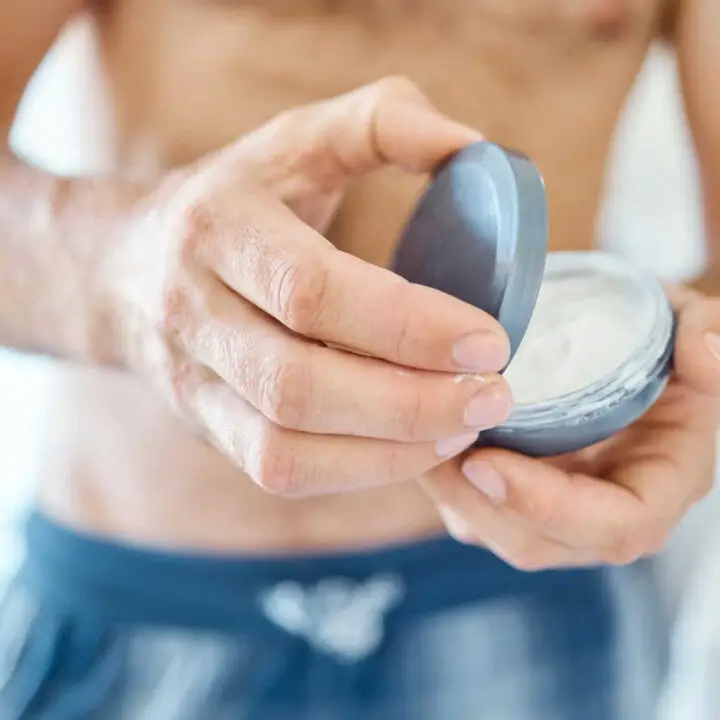
When it comes to protecting our skin from the sun’s harmful rays, most men tend to overlook the importance of sunscreen. However, the reality is that avoiding sunscreen can result in serious damage to our skin, leading to premature aging and skin cancer.
Contents
The Importance Of Sunscreen In Men’s Skincare
Common Reasons Why Men Avoid Using Sunscreen
Choosing the Right Sunscreen for Men
Practical Tips For Applying Sunscreen Effectively
The Importance Of Sunscreen In Men’s Skincare
Using sunscreen should be an essential part of any man’s daily skincare routine. It protects against the harmful UV rays that can cause skin damage and premature aging, as well as reducing the risk of skin cancer. Despite these important reasons, many men still avoid using sunscreen regularly.
But incorporating sun protection into your daily regimen can prevent future skin damage and can help repair sun damage and promote skin healing. It’s important to choose a sunscreen that matches your skin type and preferences, and to apply it effectively with practical tips like using enough product and reapplying every few hours during the daylight hours.
Common Reasons Why Men Avoid Using Sunscreen
Here are some common reasons why men avoid using sunscreen:
1. Lack of knowledge: Men often do not know about the importance of sunscreen and the harmful effects of UV rays on their skin.
2. Irritating formula: Some men find the texture and smell of sunscreens uncomfortable and unpleasant to wear.
3. Fear of acne: Men who have oily or acne-prone skin may fear that sunscreen will make their breakouts worse.
4. Belief that sun exposure is necessary: Some men believe that sun exposure is necessary for their vitamin D intake and overall health.
5. Busy lifestyle: Men tend to have a busy lifestyle and may not prioritize skin protection as part of their daily routine.
6. Gender stereotypes: Unfortunately, some men see skincare and sunscreen as “feminine” and not important to their masculinity.
Understanding Men’s Skin
There are a number of concepts you should be aware of to more fully understand men’s skin.

pH Balance And Differences From Women’s Skin
Men and women have different skin types, and one of the notable differences is the pH balance. Men’s skin has a pH balance of 5.5-6.5, which is more alkaline than women’s skin that is slightly acidic, between 4.5-5.5.
This difference is significant because most skincare products are formulated for women’s skin and may not work well on men’s skin. These products often throw off the natural pH balance of men’s skin, causing skin issues such as breakouts and irritation. Therefore, it’s essential for men to choose skincare products that are formulated explicitly for their skin type and pH balance level.
Effects Of Facial Hair On Skin
Facial hair can be a defining feature for men, but it also has effects on their skin. Here are some ways that facial hair can impact the skin:
1. Irritation and Inflammation: Facial hair can cause irritation and inflammation due to friction between the hair and the skin. This can also lead to ingrown hairs, which can be painful and unsightly.
2. Dryness: Facial hair can absorb moisture from the skin, making it dry and itchy. Regular moisturization can help combat this.
3. Sun Damage: Facial hair does not offer full protection from the sun’s harmful UV rays. This means that the skin underneath can be more prone to sun damage and skin cancer.
4. Product Build-Up: Hair products and oils can build up in facial hair, causing clogged pores and acne. Proper cleansing can help prevent this.
5. pH Balance: Men’s facial hair can affect the pH balance of the skin, making it more alkaline. This can lead to dryness, irritation, and bacterial growth.
Facial hair can be a great look for men, but it’s important to take care of the skin underneath. Regular cleansing, moisturization, and sunscreen use can help mitigate the effects of facial hair on the skin.
Natural Thickness And Oil Production
Men’s skin is naturally thicker than women’s due to the presence of testosterone, making it 20-25% thicker than women’s skin. This thickness also means that men’s skin is more collagen-rich, making it less likely to show the visible signs of aging as quickly as women’s skin. Men also produce more sebum, the natural oil our skin produces to lubricate and protect the skin. This means that products targeted to reduce oil and shine in women won’t work well for men.
Understanding the natural differences in men’s skin, including thickness and oil production, can help in selecting the right sunscreen and skincare products to keep skin healthy and protected from damage and premature aging.
Sun Damage and Men’s Skin

Let’s take a closer look at the relationship between the sun and men’s skin.
Men’s Higher Risk For Skin Cancer
Men are at a higher risk for skin cancer compared to women. Studies have shown that males are significantly more likely to die of melanoma than females, with white men experiencing the highest rates. Men’s attitudes towards skincare and sunscreen use also play a role in their higher risk, with many men reporting not using sunscreen daily or even weekly.
Delays in seeking skin checks or forgoing them altogether can also contribute to problematic moles or spots not being caught until later stages when survival rates decrease. Campaigns to increase awareness and education on the importance of daily sunscreen use and regular skin checks can help reduce men’s risk of developing skin cancer.
UV Ray Effects On Men’s Skin
Men’s skin has more melanin, which provides some natural protection against UV radiation. However, this doesn’t mean that men are immune to the effects of the sun.
1. UV rays can cause a range of skin damage, from sunburn to premature aging and skin cancer. Men are particularly susceptible to skin cancer, with higher rates of melanoma compared to women.
2. Long-term exposure to UV radiation can also cause damage to the eyes, leading to vision problems and cataracts.
3. UV radiation can break down collagen and elastin in the skin, leading to wrinkles and sagging.
4. Men who work outdoors or spend a lot of time in the sun should be particularly diligent about protecting their skin with sunscreen, protective clothing, and hats. Regular skin exams can also help catch any signs of skin cancer early.
Differences In Common Melanoma Sites Between Men And Women
Studies have shown that men are more likely to develop melanoma on certain areas of their body compared to women. Some notable differences in the common melanoma sites between men and women include:
– Men are more likely to develop melanoma on their head, neck, and trunk, whereas women are more likely to develop melanoma on their arms and legs.
– Men are also more likely to develop melanoma on their backs, which can be difficult to detect without assistance from a partner or healthcare provider.
– Women tend to develop melanoma at a younger age than men and are more likely to have multiple primary melanomas throughout their lifetime.
Awareness of these differences can help individuals, particularly men, take preventative measures to protect against melanoma by applying sunscreen in areas that are commonly exposed to the sun. Additionally, regular self-examination and medical checkups can aid in early detection and treatment of melanoma.
Benefits of Using Sunscreen
Pre skin damage and avoiding premature aging should be a top priority for men’s skincare routine. Exposure to UV radiation can cause premature aging, wrinkles, and age spots, which are key signs of photoaging. The use of daily sunscreen is crucial in preventing these harmful effects of UV rays.
Preventing Skin Damage And Premature Aging
Applying specialized sunscreens that contain antioxidants and anti-aging properties can also help repair existing sun damage. Incorporating a daily sunscreen use into a skincare routine will not only prevent skin damage but will also maintain healthy, youthful-looking skin. Choosing the ideal sunscreen with the right sun protection factor (SPF), applying it effectively, and reapplying it every two hours, especially when outdoors, is key to sun protection.
Repairing Existing Sun Damage With Specialized Sunscreens
If you’re someone who’s experienced sun damage it may not be too late to take preventative measures and repair your skin. One way to do this is by incorporating specialized sunscreens into your skincare routine. These types of sunscreens are formulated to not only protect your skin but also help repair existing sun damage.
Look for sunscreens that contain antioxidants such as vitamin C and vitamin E, which help minimize free radical damage from environmental stressors. Additionally, certain sunscreens like ISDIN’s Eryfotona Actinica SPF 50+ (Ed. note: Amazon affiliate link) contain DNA RepairsomesⓇ, which have been shown to help repair sun damage in the skin. Don’t let a little bit of sun damage make you feel discouraged – take action and protect your skin for the long term.
Importance Of Incorporating Daily Sunscreen Use Into Skincare Routine
Daily sunscreen use is crucial in men’s skincare routine to protect the skin from harmful UV rays that can cause skin cancer, premature aging, discoloration, and wrinkles. Incorporating sunscreen in your daily skincare routine is a simple and effective way to prevent these skin issues.
Applying it in the morning and throughout the day is essential, even on cloudy days. It is recommended to use a minimum of SPF 30, and for prolonged exposure, reapply every two hours. Sunscreen can be applied after moisturizer and before makeup. Making it a habit to use sunscreen daily can significantly improve the overall health and appearance of the skin.
Choosing the Right Sunscreen for Men

Factors To Consider When Choosing Sunscreen
Here are some things to consider when you’re looking for a sunscreen:
1. Sun Protection Factor (SPF): Choose an SPF of 30 or higher for optimal protection against harmful UV rays.
2. Broad Spectrum: Check if the sunscreen provides protection against both UVA and UVB rays.
3. Water Resistance: If you plan on swimming or sweating, look for a water-resistant sunscreen.
4. Skin Type: Consider your skin type when selecting a sunscreen. For oily skin, choose a lightweight, oil-free formula, and for dry skin, choose a moisturizing sunscreen.
5. Active Ingredients: Choose a sunscreen that contains active ingredients like titanium dioxide or zinc oxide, which provide physical protection from the sun.
6. Fragrance-Free: If you have sensitive skin, choose a fragrance-free sunscreen to avoid irritation.
7. Application: Choose a sunscreen that is easy to apply evenly and effectively.
By considering these factors, you can choose an effective sunscreen that provides optimal protection against the sun’s harmful rays. Always remember to reapply sunscreen every two hours for maximum effectiveness.
Sunscreen Ingredients And Their Effects
When it comes to sunscreen, understanding the ingredients and their effects is essential. Here are some key facts to keep in mind:
1. Chemical filters: These are compounds that absorb high-intensity ultraviolet radiation and convert to minimal heat. They include oxybenzone, avobenzone, octocrylene, and ecamsule. Emerging evidence suggests that some chemical sunscreen ingredients may be systemically absorbed, but the clinical importance of this is not yet clear. Further research is needed to determine whether this could result in harm.
2. Physical filters: These are mineral-based compounds that reflect or scatter ultraviolet radiation. They include zinc oxide and titanium dioxide. They are generally considered safer than chemical filters, but they may leave a white residue and can be thicker and harder to rub in.
3. Broad spectrum: Look for sunscreens labeled as “broad spectrum,” which means they protect against both UVA and UVB radiation. This is important because both types of radiation can cause skin damage and increase the risk of skin cancer.
4. SPF: The sun protection factor, or SPF, indicates the level of protection against UVB radiation. A higher SPF means more protection, but it does not necessarily mean longer-lasting protection. It’s important to reapply sunscreen every two hours, or more often if you’re sweating or swimming.
By understanding the ingredients in sunscreen and their effects, you can make informed choices to protect your skin from sun damage.
Suggested Sunscreens For Men
Based on all the information presented above, here are some well thought-of sunscreens for men to consider. Amazon links are affiliate.
CeraVe Moisturizing Lotion SPF 30 Sunscreen and Face Moisturizer with Hyaluronic Acid & Ceramides
Dermalogy by Neogenlab UVA/UVB SPF50 Day-Light Protection Airy Sunscreen
EltaMD UV Daily Face Sunscreen with Zinc Oxide, SPF 40 Facial Sunscreen
Practical Tips For Applying Sunscreen Effectively
To apply sunscreen, follow these tips:
1. Choose a sunscreen with an SPF of 30 or more that provides broad-spectrum coverage.
2. Apply sunscreen 15 minutes before going out in the sun.
3. Use at least an ounce of sunscreen for your whole body.
4. Reapply every two hours or immediately after swimming or sweating.
5. Don’t forget to apply sunscreen to all exposed areas, including your face, neck, ears, and feet.
6. If you have thinning hair, protect your scalp by applying sunscreen or wearing a wide-brimmed hat.
7. Remember to protect your lips with a lip balm that contains at least SPF 15.
8. If you’re using a spray sunscreen, remember to reapply more often.
9. Seek shade from 10 am to 4 pm, and wear protective clothing like long-sleeved shirts and wide-brimmed hats.
Conclusion
The importance of sunscreen in men’s skincare cannot be overstated. With higher rates of skin cancer and differences in pH balance, thickness, and oil production, it’s crucial for men to make daily sunscreen use a part of their skincare routine. Not only does it prevent sun damage and premature aging, but specialized sunscreens can also repair existing damage.
When choosing a sunscreen, consider factors such as SPF, ingredients, and application method. Furthermore, campaigns designed to increase men’s interest in daily sunscreen use and adherence to wearing sun-protective products should be promoted to reduce skin cancer risk and keep skin looking youthful and healthy.
About the author: Otto Wright is a wet shaver and freelance author.
